Powerful quake leaves at least 3,800 dead in Turkey and Syria

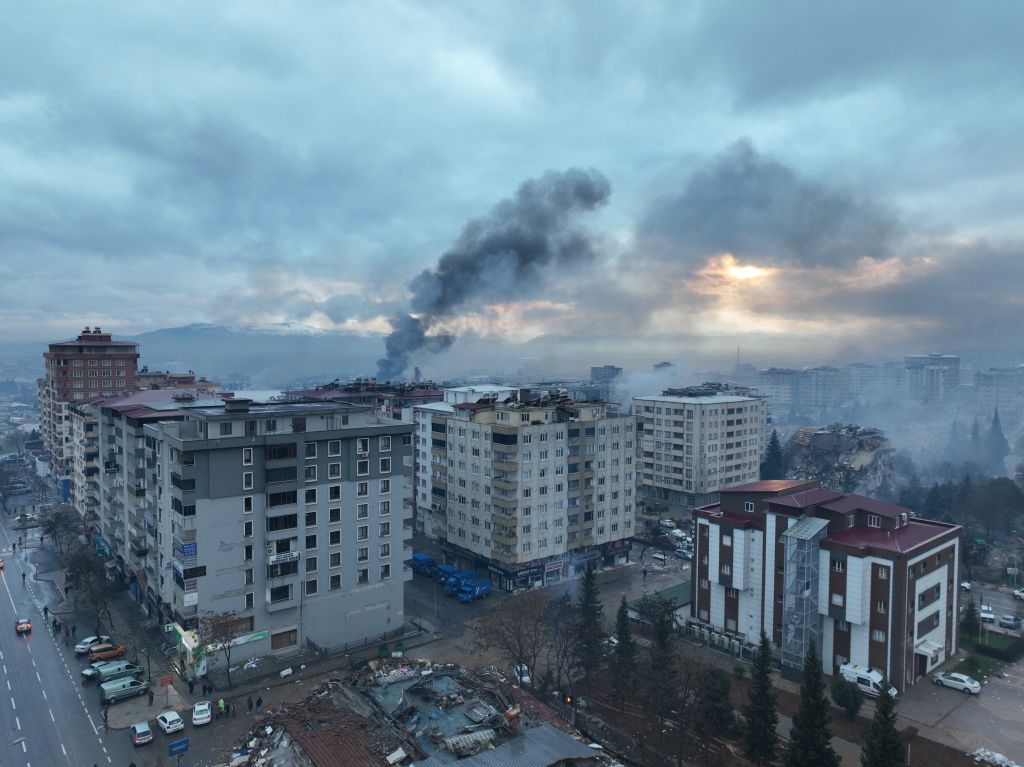
A free daily email with the biggest news stories of the day – and the best features from TheWeek.com
You are now subscribed
Your newsletter sign-up was successful
The death toll from a 7.8-magnitude earthquake that hit Turkey on Monday morning continues to grow, with officials in Turkey and Syria saying at least 3,800 people were killed between the two countries.
Turkey's state-run Anadolu news agency reported on Monday night that at least 2,379 people were killed in the country and 13,293 injured, with 5,600 buildings destroyed. In Syria, 1,450 people were killed and thousands injured, the state health ministry and White Helmets relief group said. There have been hundreds of aftershocks, including one with a 7.5 magnitude.
The quake was centered near Gaziantep in south central Turkey, and could be felt in Lebanon, Israel, Egypt, and Cyprus. Thousands of buildings have toppled in Turkey and Syria, and freezing temperatures, snow, damaged roads, and power outages are slowing down rescue efforts. Several international rescue teams are on their way to help or have already made it to the region, coming from Switzerland, Hungary, Qatar, the United Arab Emirates, and the United States.
The Week
Escape your echo chamber. Get the facts behind the news, plus analysis from multiple perspectives.

Sign up for The Week's Free Newsletters
From our morning news briefing to a weekly Good News Newsletter, get the best of The Week delivered directly to your inbox.
From our morning news briefing to a weekly Good News Newsletter, get the best of The Week delivered directly to your inbox.
"This is a race against time and hypothermia," Mikdat Kadioglu, a professor of meteorology and disaster management at the Istanbul Technical University, told The New York Times. "People got caught in sleepwear and have been under the rubble for 17 hours."
The Syrian civil war has displaced more than 6.8 million people, and 3.6 million refugees are in Turkey, with many living in areas near the earthquake epicenter. The United Nations said it is having a hard time getting humanitarian help to the refugees it helps in northwestern Syria, and the organization is "looking to mobilize emergency funds in the region," Stéphane Dujarric, a spokesman for the U.N. secretary general, said. "The earthquake is expected to disrupt aid operations in northwestern Syria, given the impact on roads, the supply chains, and logistical facilities."
Some Syrians initially thought the ground was shaking on Monday morning because of a battle, not an earthquake. Osama Salloum, a doctor in Idlib, told the Times people "kept looking up to the sky for jets. My mind was playing tricks on me, telling me it was war again."
A free daily email with the biggest news stories of the day – and the best features from TheWeek.com
Catherine Garcia has worked as a senior writer at The Week since 2014. Her writing and reporting have appeared in Entertainment Weekly, The New York Times, Wirecutter, NBC News and "The Book of Jezebel," among others. She's a graduate of the University of Redlands and the Columbia University Graduate School of Journalism.
-
 Local elections 2026: where are they and who is expected to win?
Local elections 2026: where are they and who is expected to win?The Explainer Labour is braced for heavy losses and U-turn on postponing some council elections hasn’t helped the party’s prospects
-
 6 of the world’s most accessible destinations
6 of the world’s most accessible destinationsThe Week Recommends Experience all of Berlin, Singapore and Sydney
-
 How the FCC’s ‘equal time’ rule works
How the FCC’s ‘equal time’ rule worksIn the Spotlight The law is at the heart of the Colbert-CBS conflict
-
 Death toll from Southeast Asia storms tops 1,000
Death toll from Southeast Asia storms tops 1,000speed read Catastrophic floods and landslides have struck Sri Lanka, Indonesia, Thailand and Malaysia
-
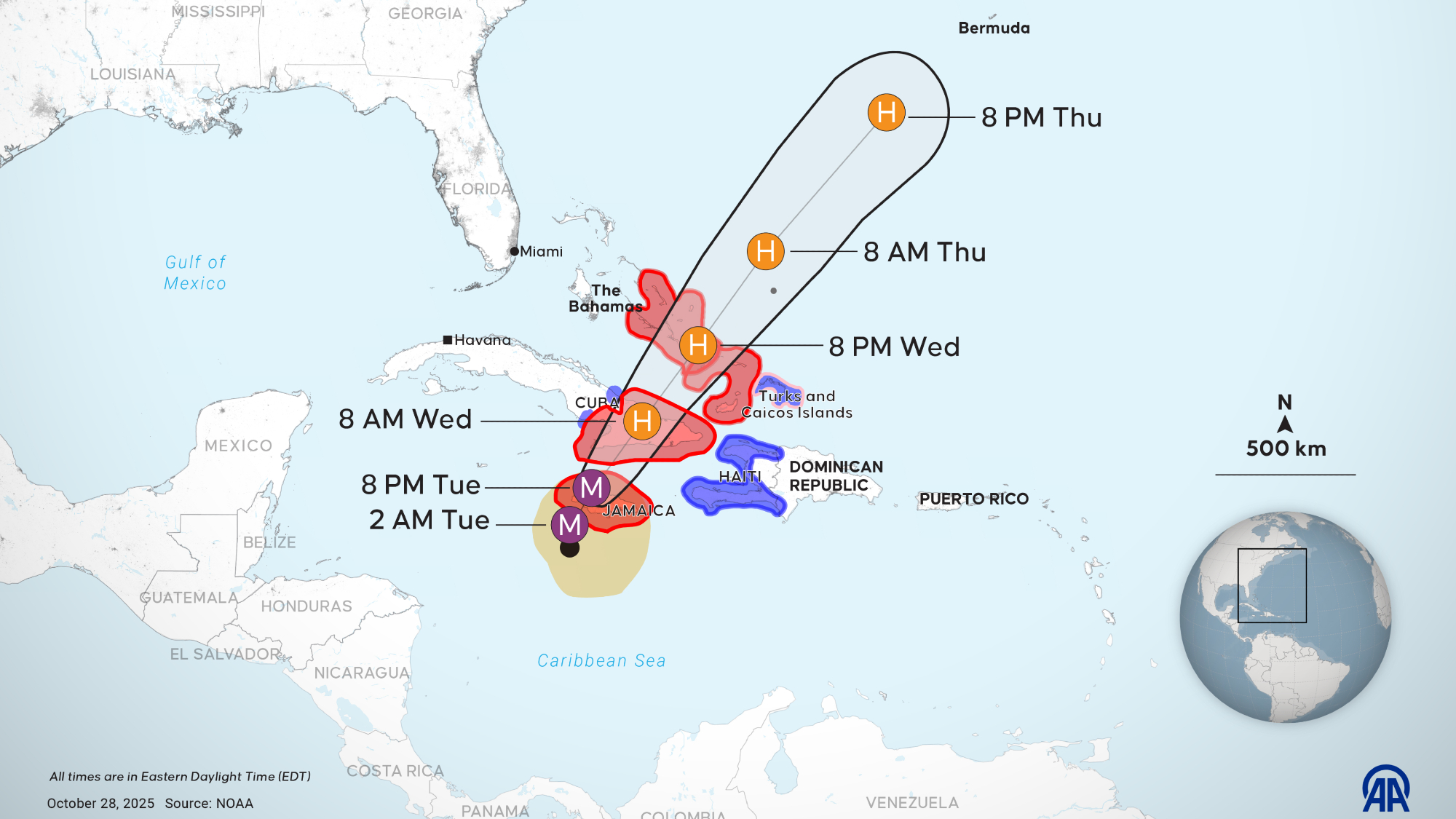 Hurricane Melissa slams Jamaica as Category 5 storm
Hurricane Melissa slams Jamaica as Category 5 stormSpeed Read The year’s most powerful storm is also expected to be the strongest ever recorded in Jamaica
-
 Renewables top coal as Trump seeks reversal
Renewables top coal as Trump seeks reversalSpeed Read For the first time, renewable energy sources generated more power than coal, said a new report
-
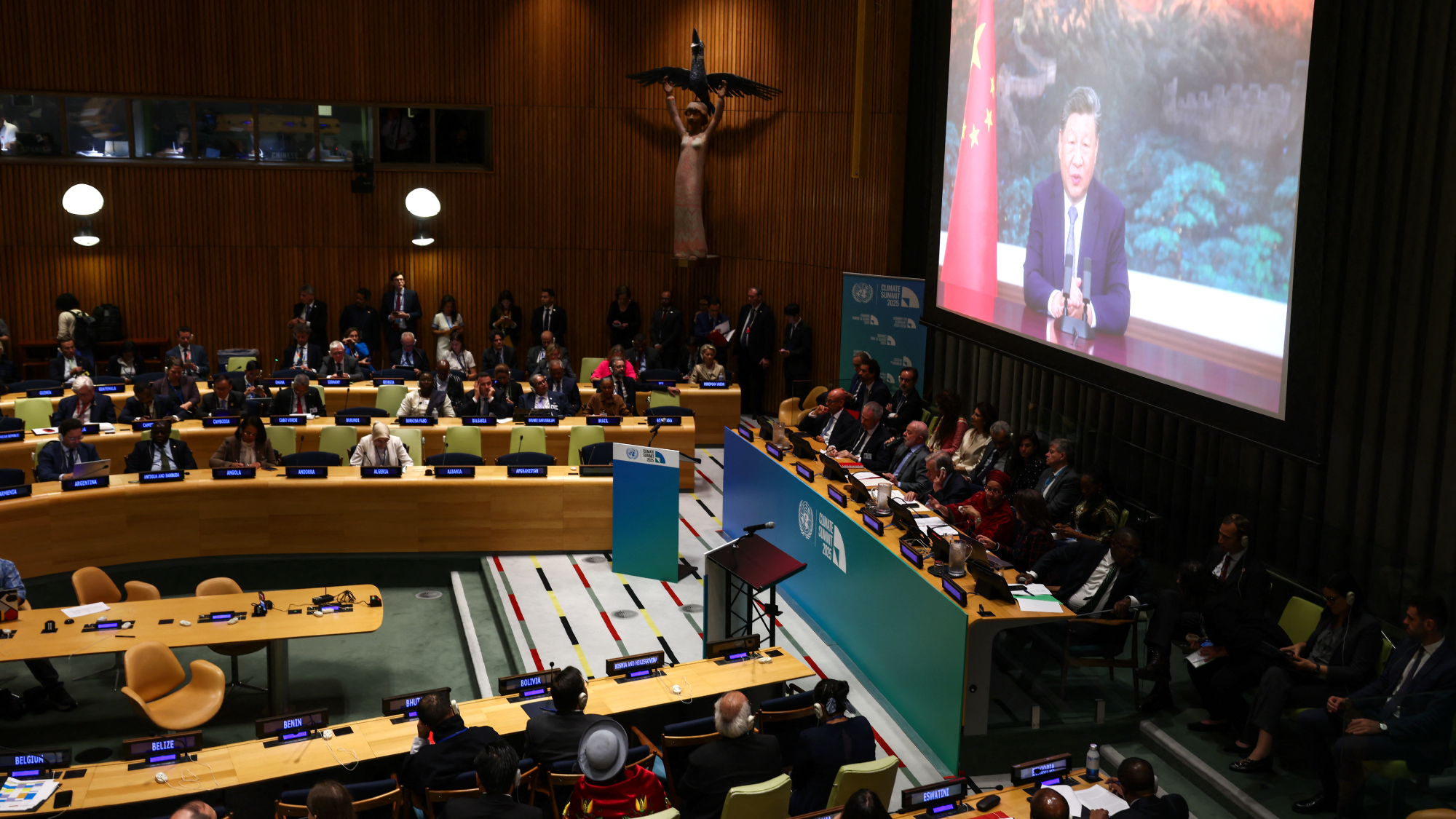 China vows first emissions cut, sidelining US
China vows first emissions cut, sidelining USSpeed Read The US, the world’s No. 2 emitter, did not attend the New York summit
-
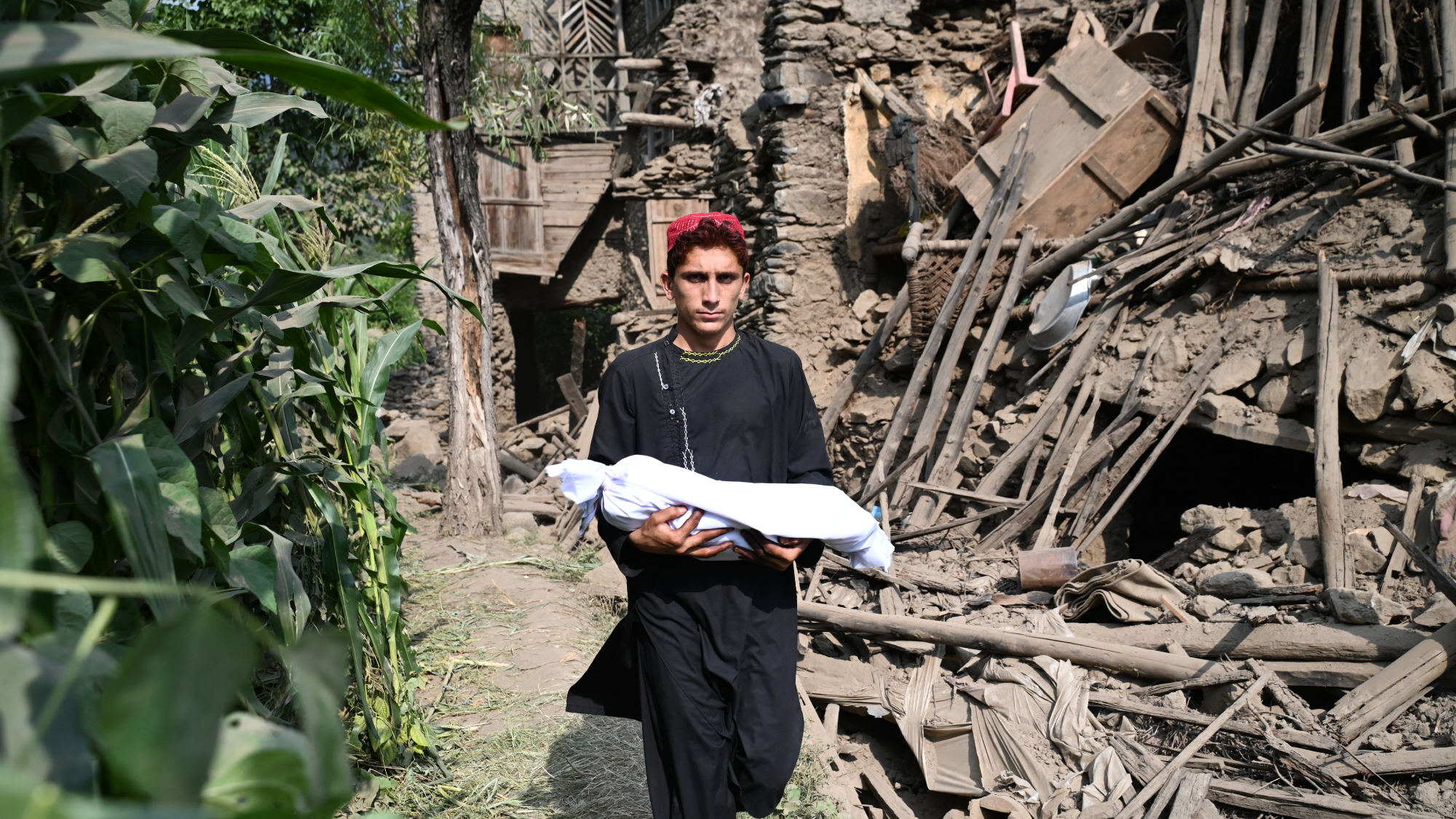 At least 800 dead in Afghanistan earthquake
At least 800 dead in Afghanistan earthquakespeed read A magnitude 6.0 earthquake hit a mountainous region of eastern Afghanistan
-
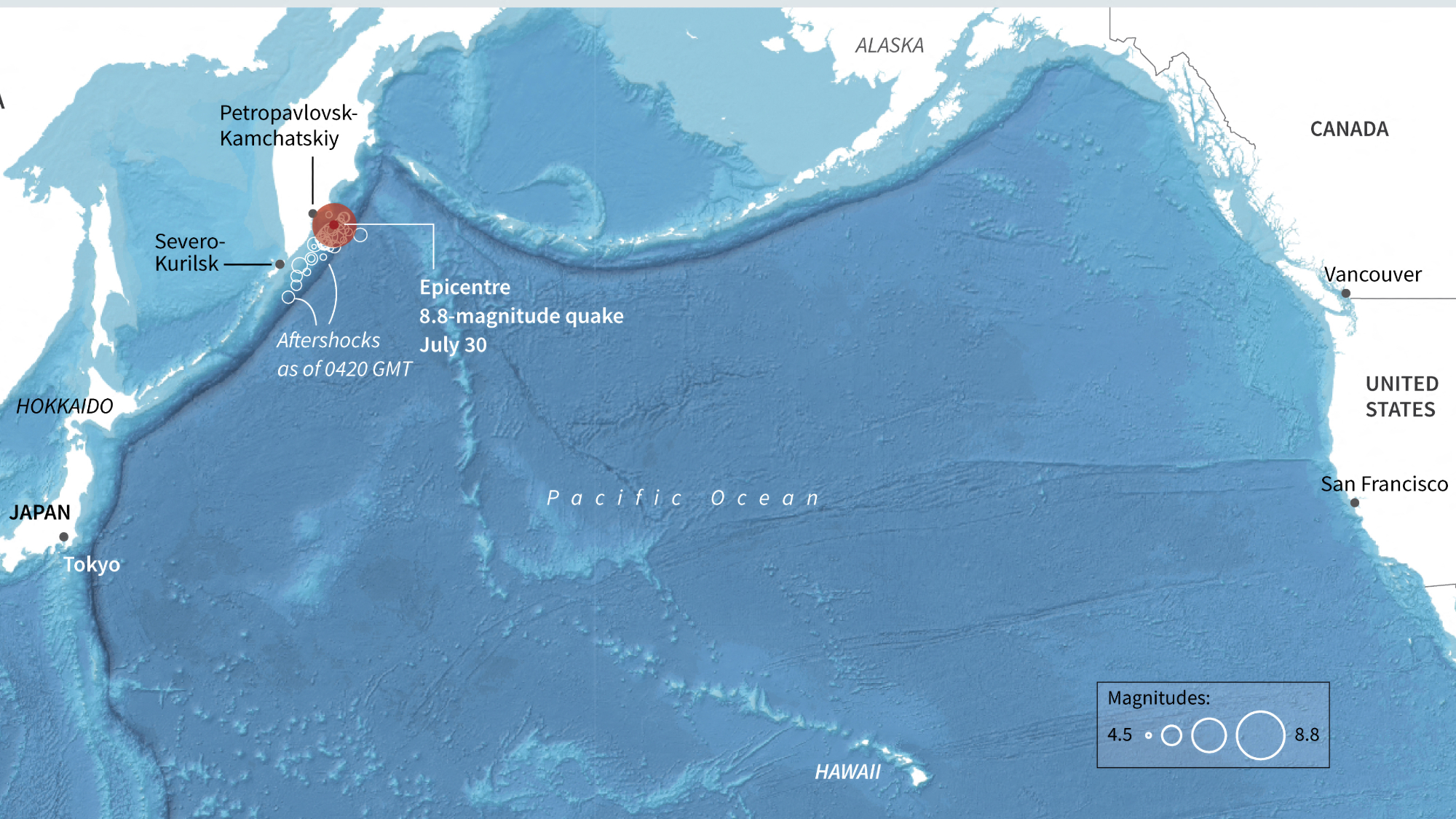 Massive earthquake sends tsunami across Pacific
Massive earthquake sends tsunami across PacificSpeed Read Hundreds of thousands of people in Japan and Hawaii were told to evacuate to higher ground
-
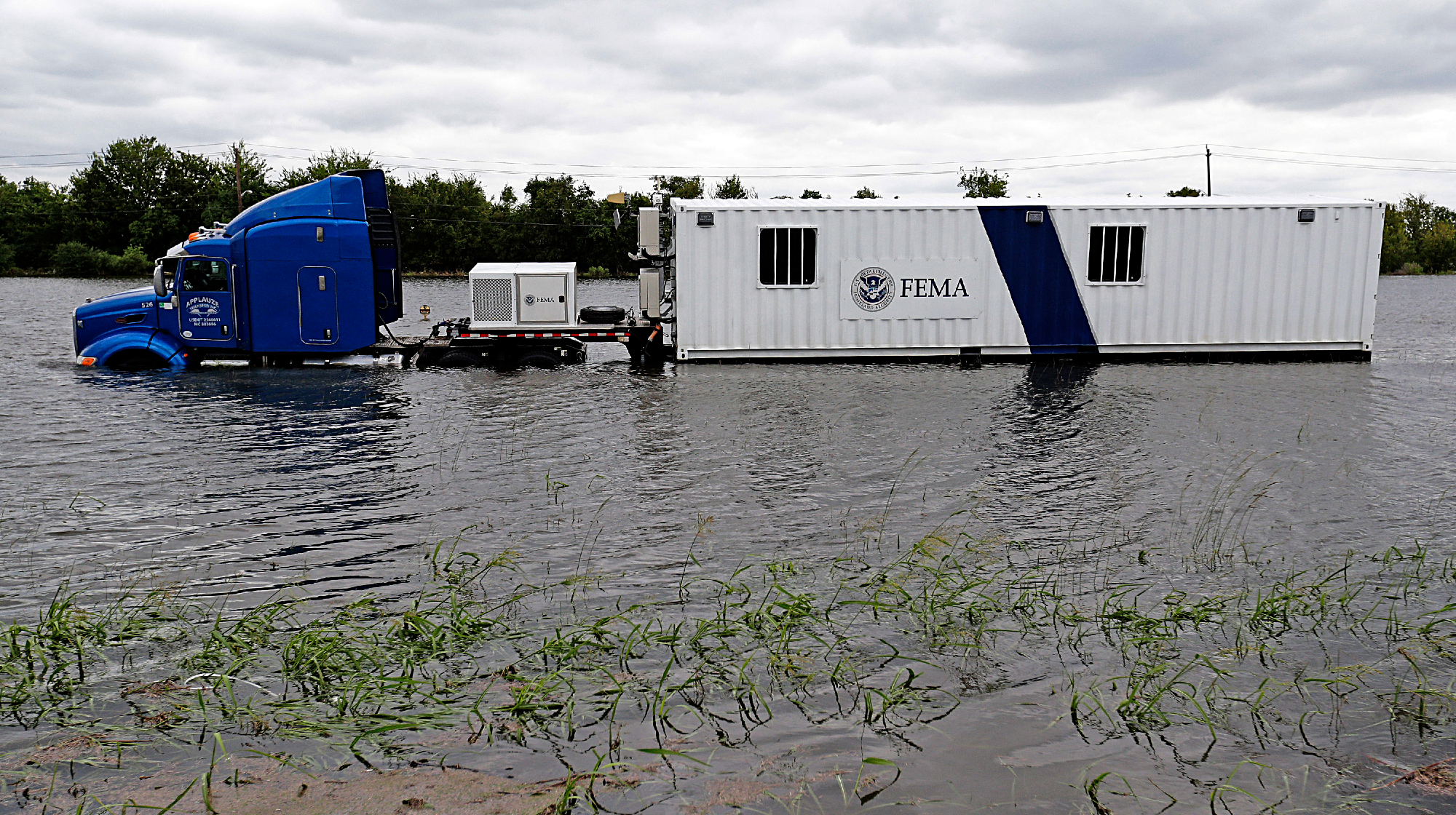 FEMA Urban Search and Rescue chief resigns
FEMA Urban Search and Rescue chief resignsSpeed Read Ken Pagurek has left the organization, citing 'chaos'
-
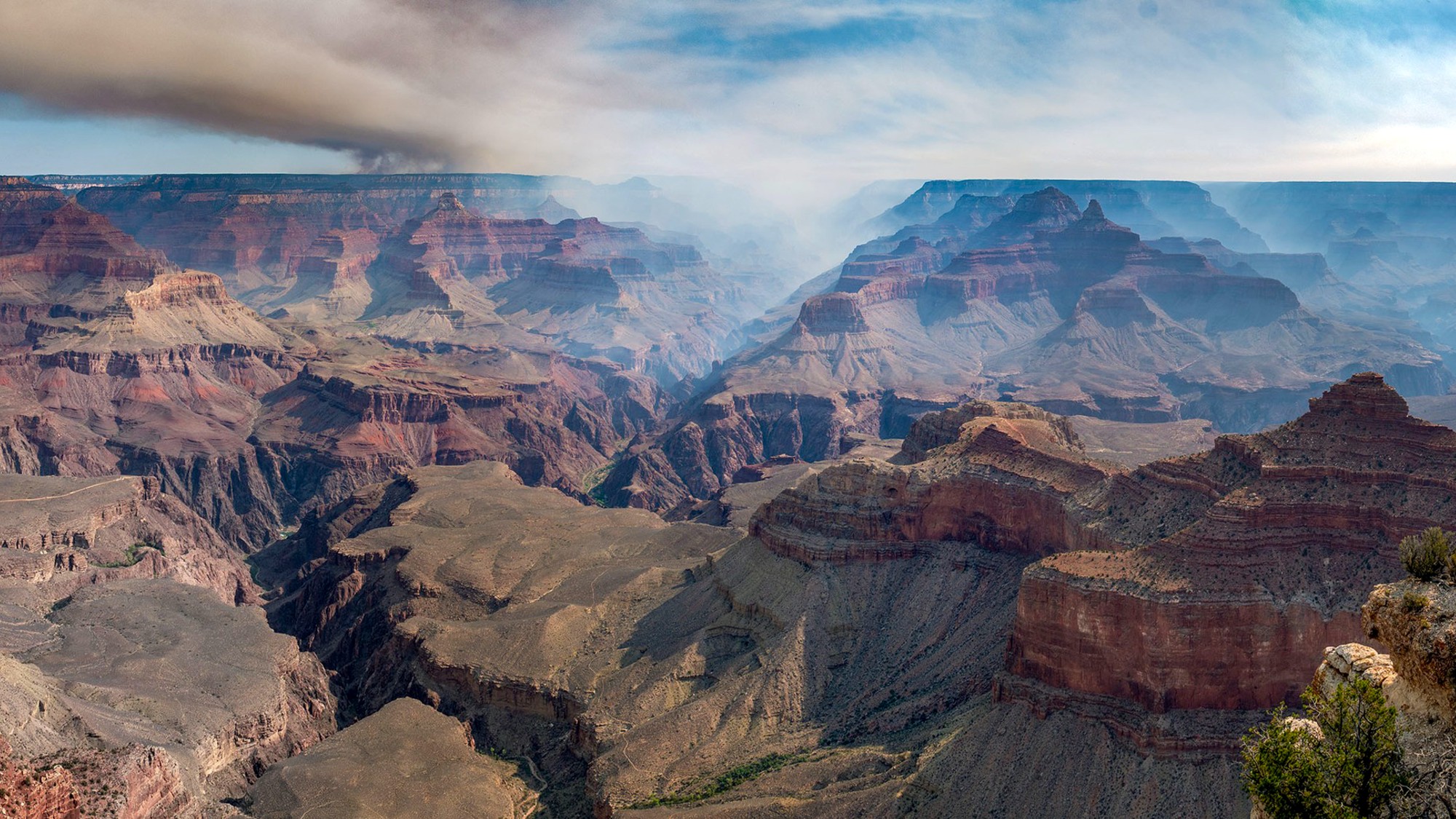 Wildfires destroy historic Grand Canyon lodge
Wildfires destroy historic Grand Canyon lodgeSpeed Read Dozens of structures on the North Rim have succumbed to the Dragon Bravo Fire
